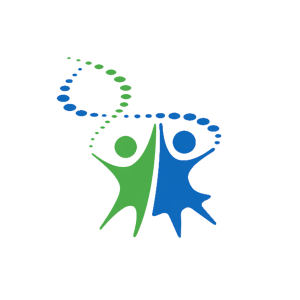ZEVASKYN™ Gene Therapy Now Available at New Qualified Treatment Center in San Francisco Bay Area
Rhea-AI Summary
Abeona Therapeutics (Nasdaq: ABEO) has activated a new Qualified Treatment Center (QTC) for ZEVASKYN, its FDA-approved gene therapy treatment, at Lucile Packard Children's Hospital Stanford. ZEVASKYN, approved in April 2025, is the first and only FDA-approved therapy to treat recessive dystrophic epidermolysis bullosa (RDEB) wounds with a single application.
The activation follows a decade-long research collaboration between Abeona and Stanford Medicine. The treatment is now available at both Stanford and Lurie Children's Hospital of Chicago. To support patient access, Abeona offers Abeona Assist™, a comprehensive support program providing insurance benefits assistance, financial support options, and travel logistics help.
Positive
- First and only FDA-approved therapy for RDEB wounds with single application
- Expansion of treatment availability to second major medical center
- Comprehensive patient support program (Abeona Assist) available for access and financial assistance
Negative
- None.
News Market Reaction
On the day this news was published, ABEO gained 0.51%, reflecting a mild positive market reaction. Our momentum scanner triggered 2 alerts that day, indicating moderate trading interest and price volatility. This price movement added approximately $2M to the company's valuation, bringing the market cap to $317M at that time.
Data tracked by StockTitan Argus on the day of publication.
- Lucile Packard Children’s Hospital Stanford is ready to accept patients for ZEVASKYN treatment -
- Abeona Therapeutics® and Stanford Medicine conducted research collaboration for more than a decade, culminating in U.S. Food and Drug Administration (FDA) approval of ZEVASKYN in April 2025 -
- ZEVASKYN is the only FDA-approved therapy to treat RDEB wounds with a single application -
CLEVELAND, July 15, 2025 (GLOBE NEWSWIRE) -- Abeona Therapeutics Inc. (Nasdaq: ABEO) today announced activation of the newest Qualified Treatment Center (QTC) for FDA-approved ZEVASKYN (prademagene zamikeracel) gene-modified cellular sheets. This first-of-its-kind therapy, an outcome of a decade of research by Abeona and two decades of research at Stanford Medicine, where the technology originated, will be used to treat wounds in adult and pediatric patients with recessive dystrophic epidermolysis bullosa (RDEB). Lucile Packard Children’s Hospital Stanford has completed QTC start-up activities and is now ready to accept patients for treatment with ZEVASKYN.
“We're thrilled to announce the availability of ZEVASKYN treatment at Lucile Packard Children’s Hospital Stanford and to continue our long-standing collaboration with Stanford Medicine,” said Dr. Madhav Vasanthavada, Chief Commercial Officer of Abeona. “This site activation is a key milestone in our commercial launch, and we are excited that RDEB patients can now access ZEVASKYN at both Lucile Packard Children’s Hospital Stanford and Lurie Children’s Hospital of Chicago.”
Joyce Teng, MD, PhD, professor of dermatology at Stanford University and pediatric dermatologist at Stanford Medicine Children’s Health, said, “This treatment offers profound new hope for patients and families battling this life-altering, painful skin disorder. This milestone is a powerful testament to the patients participating in clinical trials, and the tireless dedication of Stanford Medicine’s scientists and medical professionals who pioneered this research. This represents a scientific triumph and a profound step toward improving quality of life for so many.”
Abeona is committed to enabling access to ZEVASKYN for eligible patients in the U.S. and has deployed services to provide information and resources to make informed decisions about treatment with ZEVASKYN for RDEB wounds. Abeona’s comprehensive patient support program, Abeona Assist™, offers personalized support, including helping patients understand their insurance benefits and financial assistance options, and providing travel and logistical assistance. For more information on how to access ZEVASKYN and learn about patient support services offered through Abeona Assist, visit www.abeonaassist.com, call 1-855-ABEONA-1 (1-855-223-6621) or email MyNavigator@AbeonaAssist.com.
About ZEVASKYN™ (prademagene zamikeracel) gene-modified cellular sheets
ZEVASKYN is the first and only autologous cell sheet-based gene therapy for the treatment of wounds in adult and pediatric patients with recessive dystrophic epidermolysis bullosa (RDEB). RDEB is a severe skin disease caused by a defect in both copies of the COL7A1 gene resulting in the inability to produce functional type VII collagen. Without functional type VII collagen and anchoring fibrils, the skin is fragile and blisters easily, leading to wounds that continually open and close, or fail to heal altogether. Patients often have large open wounds that can lead to serious life-threatening complications. ZEVASKYN incorporates the functional type VII collagen-producing COL7A1 gene into a patient’s own skin cells, ex vivo, using a replication-incompetent retroviral vector to produce functional type VII collagen in treated wounds. ZEVASKYN has demonstrated clinically meaningful wound healing and pain reduction with a single surgical application. For more information, visit www.ZEVASKYN.com.
Indication
ZEVASKYN™ (prademagene zamikeracel) is an autologous cell sheet-based gene therapy indicated for the treatment of wounds in adult and pediatric patients with recessive dystrophic epidermolysis bullosa (RDEB).
Important Safety Information
- Serious allergic reactions to ZEVASKYN can occur. Patients should get medical help right away if they experience symptoms like itching, swelling, hives, difficulty breathing, runny nose, watery eyes, or nausea. In rare cases, a severe reaction called anaphylaxis may happen.
- There is a potential risk that treatment with ZEVASKYN may contribute to the development of cancer because of how the therapy works. Patients should be monitored for the rest of their lives to check for any signs of cancer.
- ZEVASKYN is made using human and animal materials. Although these materials are tested before use, the risk of passing on infections cannot be eliminated.
- The most common side effects are pain from the procedure and itching.
This is not a complete list of side effects. Patients should call their care team for medical advice about side effects. Side effects may be reported to Abeona at 1-844-888-2236 or FDA at 1-800-FDA-1088 or www.fda.gov/medwatch.
See full Prescribing Information.
About Abeona Therapeutics
Abeona Therapeutics Inc. is a commercial-stage biopharmaceutical company developing cell and gene therapies for serious diseases. Abeona’s ZEVASKYN™ (prademagene zamikeracel) is the first and only autologous cell-based gene therapy for the treatment of wounds in adults and pediatric patients with recessive dystrophic epidermolysis bullosa (RDEB). The Company’s fully integrated cGMP cell and gene therapy manufacturing facility in Cleveland, Ohio serves as the manufacturing site for ZEVASKYN commercial production. The Company’s development portfolio features adeno-associated virus (AAV)-based gene therapies for ophthalmic diseases with high unmet medical need. Abeona’s novel, next-generation AAV capsids are being evaluated to improve tropism profiles for a variety of devastating diseases. For more information, visit www.abeonatherapeutics.com.
ZEVASKYN™, Abeona Assist™, Abeona Therapeutics®, and their related logos are trademarks of Abeona Therapeutics Inc.
Forward-Looking Statements
This press release contains certain statements that are forward-looking within the meaning of Section 27A of the Securities Act of 1933, as amended, and Section 21E of the Securities Exchange Act of 1934, as amended, and that involve risks and uncertainties. We have attempted to identify forward-looking statements by such terminology as “may,” “will,” “believe,” “anticipate,” “expect,” “intend,” “potential,” and similar words and expressions (as well as other words or expressions referencing future events, conditions or circumstances), which constitute and are intended to identify forward-looking statements. Actual results may differ materially from those indicated by such forward-looking statements as a result of various important factors, numerous risks and uncertainties, including but not limited to, our ability to commercialize ZEVASKYN, the therapeutic potential of ZEVASKYN, whether the unmet need and market opportunity for ZEVASKYN are consistent with the Company’s expectations, continued interest in our rare disease portfolio; our ability to enroll patients in clinical trials; the outcome of future meetings with and inspections from the FDA or other regulatory agencies, including those relating to preclinical programs; the ability to achieve or obtain necessary regulatory approvals; the impact of any changes in the financial markets and global economic conditions; risks associated with data analysis and reporting; and other risks disclosed in the Company’s most recent Annual Report on Form 10-K and subsequent periodic reports filed with the Securities and Exchange Commission. The Company undertakes no obligation to revise the forward-looking statements or to update them to reflect events or circumstances occurring after the date of this press release, whether as a result of new information, future developments or otherwise, except as required by the federal securities laws.

Investor and Media Contact: Greg Gin VP, Investor Relations and Corporate Communications Abeona Therapeutics ir@abeonatherapeutics.com







